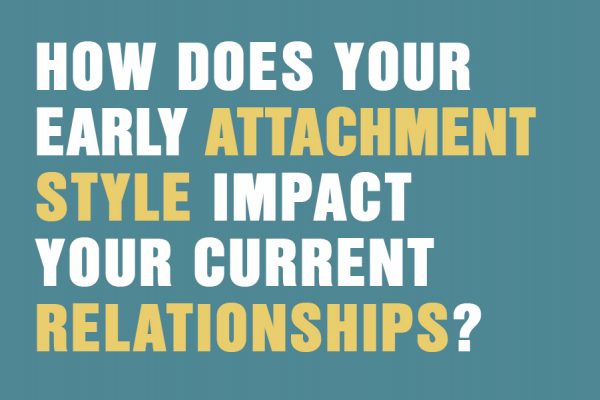Swipe left or swipe right? Modern dating sites and apps are transforming our approach to relationships but do they spell the death of romance or is it still possible to find love in the time of Tinder?
According to recent research dating apps are responsible for 14 per cent of current relationships. An astonishing 55 per cent of British people say they use them, which means almost 17 million singletons in Britain are using smart-phones apps to find love. This incredibly rapid rise of smart-phone dating culture, with its emphasis on carefully chosen pictures and heavily edited profiles, has been taken to show that we have become obsessed with surface qualities and instant gratification. But does the use of Tinder, etc. come at the expense of true love?
It is undeniable that being asked to make snap judgements about people’s profile pictures and swiping through hundreds of photos in a short space of time can begin to dehumanise the process of seeking a partner. The danger is that we will stop seeing each other as fully rounded human beings deserving of our consideration, care and kindness and think of them as a hot-or-not rating from one to 10.
Also there is a risk that in portraying ourselves in highly curated ways, we then have to live up to the illusions we create. We have to ‘act’ this perfect partner self and spontaneity and authenticity can get lost in the process.
Tinder and co also put you on the receiving end of rejection — dates get cancelled at the last minute, people who seemed keen at the outset don’t show up and disappear off the face of the earth. Our relationship counsellors report that all this disappointment takes its toll on their clients. It can be painful and leaves people feeling cynical and despairing of the whole process of looking for a partner.
Then there is the common perception that dating apps are all about casual sex and hook-ups rather than lasting love. Critics say Tinder is a great way to get a one-night stand, but not so great if you are looking for something more serious and lasting.
Research seems to show that the only benefit of technology driven dating methods is that they give more choice and open up new opportunities that wouldn’t have existed without dating apps and websites. However more recent psychological studies show that Tinder, with its invitation to speedy and superficial judgements, actually leads to more lasting relationships than online dating sites that use compatability algorhythms to help you find a partner. So it looks like superficiality can actually be an asset.
Tinder is a digital version of speed dating. It expands your dating pool, and speeds up the process of meeting someone. And, in a way, this takes dating back to the pre-Internet era, to a time when people met their potential partners in bars or at parties and had to quickly form a sense of whether there was any chance of romantic compatibility developing.
For most Tinder users it is not a question of either/or — either I will have a one-night stand or I will find a serious relationship. In general they just want to be out there meeting people, feeling attraction and working out what they want from each encounter. And the best way to begin all of that is with the ‘reality swipe’ — the sort of quick assessment of whether there is any rapport and chemistry you get when you first meet someone in person.
Smartphone-based dating does emphasise physical appearance, but we have always made judgements based on that to an extent. And for singles who want to find a life partner and be out having fun and meeting lots of people in the meantime, a dating app is not a bad option.
The Six Essential Skills You Need To Navigate Today’s Technologically Driven Dating World
1. Be realistic, think short-term
Deciding whether you want to spend the rest of your life with someone is not the work of days or weeks. Instead of thinking on your first date, ‘is this someone I will reach my silver anniversary with?’ take things as they go. Training yourself to think ‘do I want to see you next week?’ rather than ‘are you the one?’ takes the stress out considerably. It is only a minor shift in attitude and will help you open up to whether connection is developing.
2. Sit with uncertainty
The uncertainty of not knowing whether you want a long-term relationship with someone you have met can be agonising, but don’t let that make you move on. The fact that there are scores more people to look at on your phone doesn’t mean you should look at them all; work out what is going on with this person in the here and now. Get familiar with those feelings of anxiety and discomfort: how do they feel in your body? Sit with the feelings rather than moving on or brushing them aside. This will help build your tolerance for uncertainty, allowing your potential new relationship time to progress naturally.
3. Forget the three-date rule
Many people follow the unwritten rule that if you get to the third date and chemistry hasn’t set you ablaze, you should move on. This is an unrealistic, unhelpful and unfair expectation. The only thing you should reasonably expect after three dates is: do you want a fourth?
4. There’s no hurry
Many counselling clients with relationship issues have a real, and understandable, fear of being alone. This can cause them to rush in where fools fear to tread as the saying goes. However all relationships have their own unique speed, and you have to find that pace and work with it. If you try to rush the other person, you could unconsciously create pressure on them and inadvertently push them away. Take a deep breath, manage your anxiety and slow yourself down.
5. Being Present is the best present.
The key to being liked is liking the other person. If you show an interest in and curiosity about your date this will not only give you the information you need to decide if you want to get to know them better, it also keeps you present and prevents your past experience from influencing your behaviour and view of how things will go with this new date.
6. Practice makes perfect
It’s easy to feel burnt out by all this dating activity. But do not give up. It can take time to develop these skills, so don’t criticise yourself for not having them all already. Nobody was born knowing all this stuff, we are all works in progress learning as we go. Keep practising and you will get there.
If you would like to work on your relationship issues, we have a team of counsellors who will be able to help. Call 020 8673 4545 or email [email protected] for a confidential appointment.







